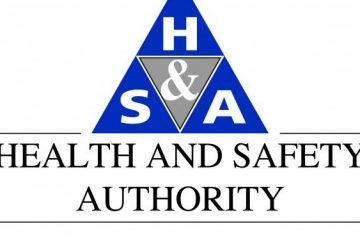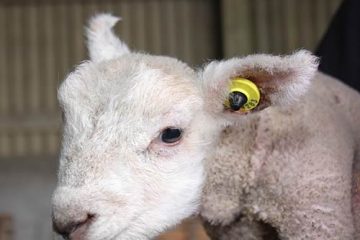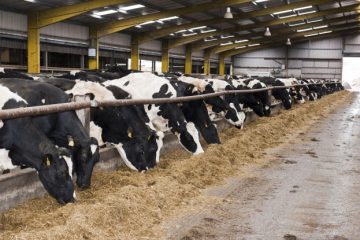The ICSA joined together yesterday in protest against EID tagging of lambs and sheep introduced by Minister Michael Creed outside the Department of Agriculture headquarters in Dublin.
The organisation held the protest in order to highlight growing anger among sheep farmers centred around EID tagging and the clean sheep policy.
At the start of this month Minister Creed announced that mandatory electronic tagging will apply to all sheep sold from October 1st onwards.
In addition, lambs under 12 months of age moving directly to slaughter from the holding of birth will be required to be identified with a single electronic tag and a one off support measure up to €50 per keeper will be made for the first purchase of EID tags.
“There is neither rhyme nor reason to the Minister’s decision to impose mandatory electronic tagging on lambs going direct to the factory. The traceability requirement is that they are tagged before they leave the farm. A few hours later, the lamb is processed with the ear disposed of and the costly electronic ear tag is in the skip”, said ICSA sheep chairman John Brooks.
According to the ICSA, the decision will add some €2.5 million cost to sheep farmers, based on additional costs of €1/lamb and a throughput of some 2.5 million lambs per annum.
Mr Brooks added that the proposal for a one off payment of €50 was really rubbing farmers up the wrong way.
“Does the Minister really believe we can be bought off for €50? You’d give it to a youngster for their holy communion but it doesn’t make up for a permanently imposed cost leading to a 7% cut in sheep farmers’ profits.
“That’s on lowland farms. The situation is even worse for hill farmers who are being asked to fund an extra euro when selling store lambs from the hills that might only be worth €20-30.”
The protest also raised concerns over the clean sheep policy and how this has posed challenges to meat factories.
“We need an urgent review of the implementation of the policy as we cannot allow a repeat of the chaos we have seen on occasion in factories with whole consignments of lambs being sent off for shearing.
“It is incumbent on the Department to pull all stakeholders together to develop a consensus on what will work in practice.
“It is especially important that Teagasc develop and trial systems of production that will ensure farmers can comply with requirements.
“Farmers need certainty and there is a lot of anger about the lottery of sending lambs in to a factory not knowing what will happen to them,” said Mr Brooks.
ICSA wants an urgent meeting with the Minister and the association is insisting that it’s “back to the drawing board” for compulsory EID for lambs and for the clean sheep policy.



